What Causes Eye Allergies?
Eye allergies, which are also referred to as allergic conjunctivitis, can occur when allergens in the air, such as pollen, pet dander or dust, come into contact with the thin membrane covering your eyeball.
For Example:

Pollen
Spending time outside in the spring and summer months, when pollen counts are high, may lead pollen to become attached to clothing, skin or hair. When these particles come into contact with someone’s face, an eye allergy can be triggered.

Dust and mold
Surfaces around the home can easily collect dust mites and mold spores, especially if they’re not cleaned frequently. Touching one of these surfaces and then putting your hand to your face could trigger eye allergies.
Why are my eyes itchy and watery?
When the membrane covering your eyeball, called the conjunctiva, becomes irritated by allergens, a chemical known as ‘histamine’ is released.
Histamine can cause uncomfortable symptoms, such as itchy, watery and swollen eyes, as a result of allergies. So, if you’re experiencing itchy, watery eyes, there is a good chance that these symptoms are caused by allergies. Read on to learn more about some other common symptoms you may experience if you have eye allergies.
Eye Allergy Symptoms
Eye allergies can come with a variety of symptoms, ranking from minor eye irritation to more visible and annoying reactions. In particular, allergic conjunctivitis might lead you to experience the following:
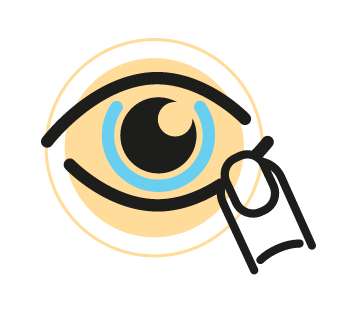
Itchy Eyes
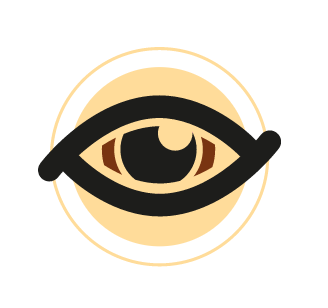
Swollen Eyes
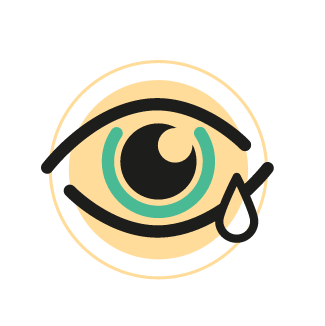
Watery Eyes
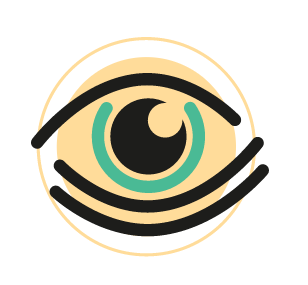
Puffy eyes

Swollen/Itchy Eyelids
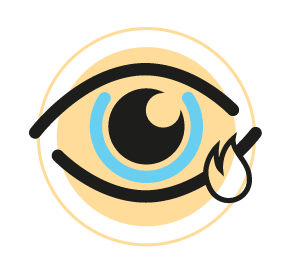
‘Burning’ Eyes

Dry Eyes
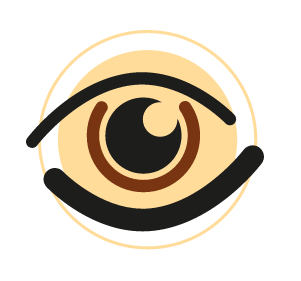
Dark Circles Under the Eyes
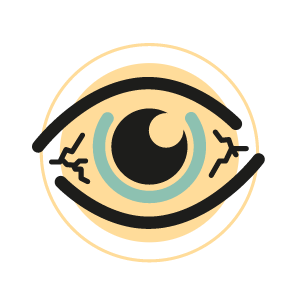
Red Eyes
ZYRTEC® is only indicated for itchy, watery eyes.
How to Tell if Your Symptoms are Caused by Allergies or Something Else
Of course, allergic conjunctivitis isn’t the only thing that might cause these symptoms.
If your eyes are bothering you in winter, it’s unlikely to be hay fever or seasonal allergies that’s behind it. If you haven’t been near an animal, it might not be pet dander either.
Some symptoms, such as red, itchy and watery eyes, are also shared with eye infections – commonly known as bacterial conjunctivitis or ‘pink eye’.
If you also have these symptoms, it may be infection rather than an allergy that’s behind it:
Pain1
‘Gritty’ feeling1
Sensitivity to light1
Thick and/or mucus-like discharge1
Be sure to seek medical advice if you are concerned or are in serious discomfort.
What’s the Difference Between Eye Allergies And Pink Eye?
Eye allergies, or allergic conjunctivitis, are caused by a reaction to allergens in the air, while pink eye (bacterial conjunctivitis) is usually down to bacterial infections, or a virus. Allergies usually cause irritation in both eyes too, while pink eye often occurs in one and then may spread to the other.
Unlike pink eye, eye allergies are not contagious – and will last only as long as you’re exposed to the allergen.
Eye Allergy Treatment And Relief Tips
The easiest method for eye allergy treatment and relief is to limit your exposure to allergens in the first place.
Try to limit time outdoors when pollen is at its peak and clean your air filters in the fall and winter to help prevent allergies related to mold and dust.
Some simple lifestyle changes can also help with allergies at home.
At-Home Eye Allergy Remedies
If you’re wanting some simple home remedies for itchy eyes, you can try to reduce eye irritation in the following ways:
Wash your eyes – this can help remove allergens and irritants that might be sticking to your eyes and eyelashes. Rinsing with water or a simple saline solution should do the trick
Apply a cold compress to your eyes – this can help reduce swelling and puffiness
Eye Allergy Medicine
Looking for the best allergy medicine for itchy eyes? ZYRTEC® tablets and liquid gels can help minimize watery eyes and other allergy symptoms. ZYRTEC® starts working at hour one and all of our antihistamine products contain Cetirizine HCl to relieve your worst allergy symptoms, indoors and out, for a full 24 hours.

